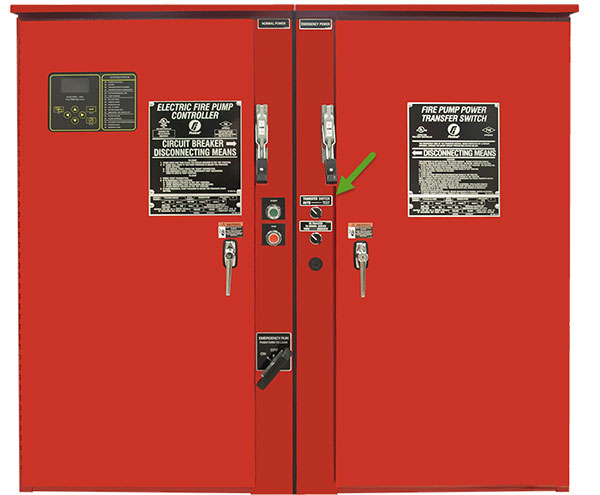With the weather and freezing temperatures expected in central Texas and surrounding areas in the coming days, we want to prepare our customers in case of extended periods of time without power or heat. These conditions can create hazardous environments in many ways, which can cause severe damage to fire pumps if not responded to properly.
Below are guidelines on how to mitigate the damage that can be caused to fire pumps by extended power outages.
-
Pumps should be shut off and powered down, including diesel, electric, and jockey pumps. If left turned on during the extended power outage, when power is returned, there is a risk that the pressure lost in the system will fully engage the pumps, and ultimately destroy the pump controller.
Shutting off fire pumps is an easy process, which our team can guide you through over a phone call, or a technician can be dispatched to help.
In some instances, the fire pump will have a transfer switch that will automatically switch the incoming power to generator power when the main power source is disrupted. If your fire pump has a transfer switch, it is not necessary to shut down the fire pump or jockey pump. A transfer switch will be clearly identified as such on the controller. See below for a visual of a fire pump controller with transfer switch.
- Dry systems should be shut off, including shutting down the control valve, and opening up the drain line.
- Wet systems should be shut off and drained down where possible.
- Contact Impact Fire if you need additional help. We have nine offices and over 200 technicians throughout Texas, and are available to provide support.
- Keep in mind that any repair calls will be “patched” for the time being and not fully repaired, so our technicians are available to help more businesses during this time. Full repairs can be performed in subsequent weeks.
- All systems should be air tested before recharging once repairs are performed.
The Impact Fire team is available for further explanation and planning, as necessary. We’re here to support you.




